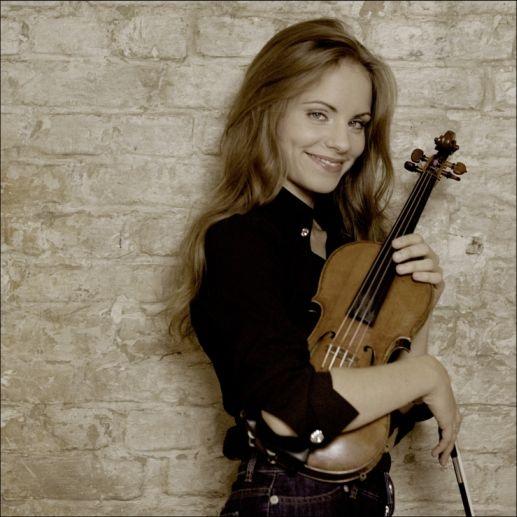Rossini provided the lively curtain-raisers to both halves of this Chamber Orchestra of Europe concert, streamed live to Aberdeen where Shell, the sponsors, have something of a vested interest in keeping their employees entertained. The liquid gold on this occasion was of the legato variety and not one but two Fischers ensured that it flowed freely and purposefully. Ivan Fischer is quite simply one of the most perceptive and persuasive conductors on the planet; Julia Fischer (no relation) is the epitome of German cool and precision. She plays the violin rather well, too.
Julia Fischer slightly disconcerted me with the opening page of the Mendelssohn Violin Concerto offering it gently and quite shyly as if she hadn’t yet noticed the molto appassionata marking. But the fire quickly kindled and the range of expression between fragile and robust thoroughly exploited all possibilities. The grace of it was especially telling with that ethereal transition into the second subject finding pure tone through the almost total eradication of vibrato. Fischer is very creative with vibrato though I sometimes wish she would show us more of herself beyond a no-nonsense, business-as-usual, demeanour. True it’s the playing that walks the walk and talks the talk but its exquisite fastidiousness could be tempered with what one might describe as an inner joy. Or even, heaven forbid, warmth. Her encore – the second movement of Ysaye’s Second Sonata with its Bachian obsession of the Dies Irae – was scary.
The sun did come out again with Rossini’s audacious Variazione a piu istrumenti obbligati whose solo turns were quite literally done as “stand up”, a running gag perpetrated in Fischer’s feigned surprise as to who might pop up next. Thereafter it was young Schubert who popped up with the promise of perpetual Spring in his Fifth Symphony – one of those “life is good” pieces which doesn’t feel composed but rather perennially sung. So naturally was this performance shaped and shaded that the harmonic gorgeousness evolving from the gracious interweaving of strings and winds seemed like a divine accident. It was and it wasn’t.














Add comment